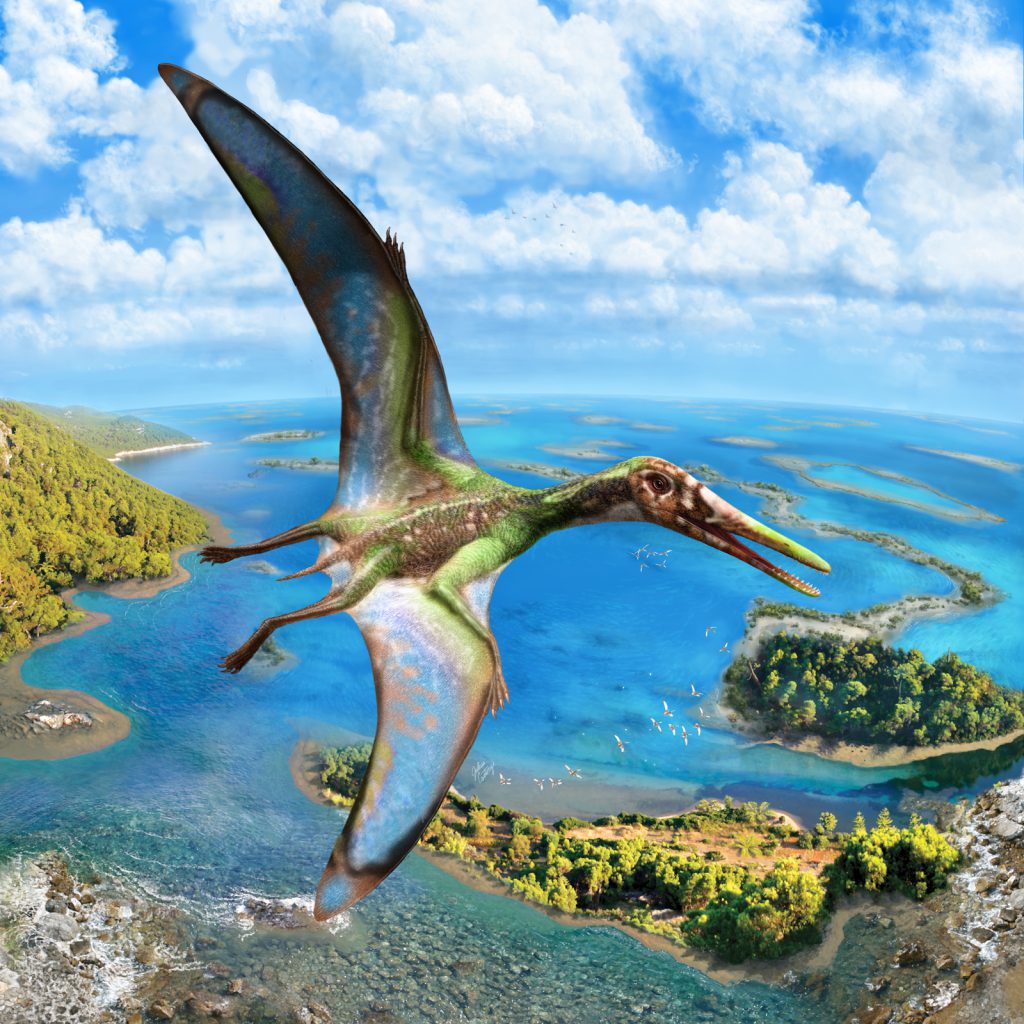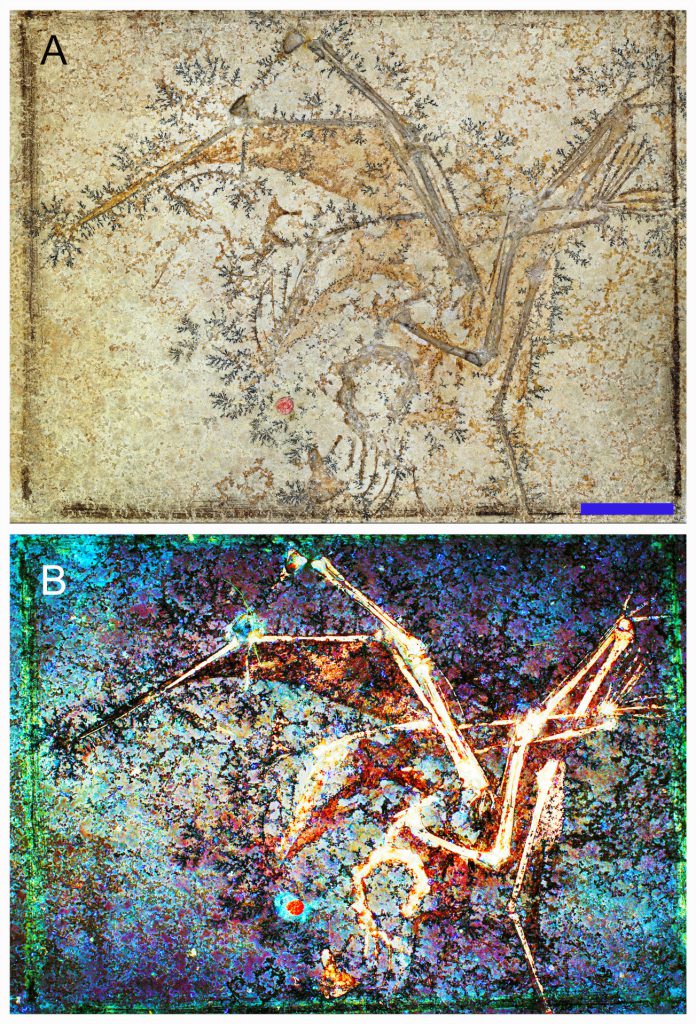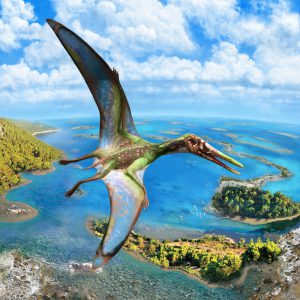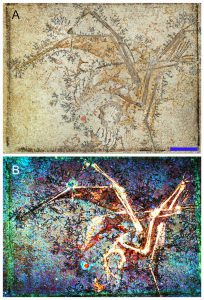CUHK
News Centre
CUHK suggests that pterosaurs took off from water 150 million years ago like ducks do
Laser images of extinct flying reptile fossils reveal how these ancient creatures took off from the surface of water and became one of the first conquerors of the air. By analysing their body structure, a palaeontology research team led by The Chinese University of Hong Kong (CUHK) suggested that flying reptiles called pterosaurs possessed the ability to water launch using both their feet and wings as early as 150 million years ago, during the Jurassic period. This was 30 million years earlier than previous studies have found. The research was reported in Scientific Reports, a popular journal in the natural sciences published by Nature.
The aurorazhdarchid, which lived in the Late Jurassic, was a small-sized pterosaur with a wing span of approximately 40 cm. Like many other pterosaurs, to dive for food and for other water-based activities, it would need to take-off from water. How these creatures took off from water puzzled scientists for decades, especially since water has high surface tension acting like a glue that could obstruct pterosaurs, particularly smaller species, from flying.
To solve the mystery, Dr. Michael Pittman of CUHK’s School of Life Sciences and his international team, used a novel laser-fluorescence imaging technique to reveal details of preserved soft tissue from pterosaurs’ wing membranes and webbed feet. The imaging was performed at the Museum für Naturkunde in Berlin by Dr. Pittman and his partner and co-author of the paper Thomas G. Kaye of the Foundation for Scientific Advancement.
Dr. Pittman said, “The laser-fluorescence imaging technology provides a high-res look at the pterosaur’s body structure. The team used these data to perform aerodynamic modelling showing that this pterosaur was capable of using its wings and feet to perform a ‘quadrupedal water launch’, similar to how ducks fly today.”
Previously, quadrupedal water launches had only been proposed and analysed for large pterosaurs, like the Cretaceous Brazilian Anhanguera, that lived off ancient oceans. In this context, this study shows that water launch was possible in smaller pterosaurs and appeared 30 million years earlier than previously thought.
Dr. Michael B Habib of the Natural History Museum of Los Angeles County, one of the co-authors of the paper said, “This work adds perspective to the lifestyles of pterosaurs. We should envision pterosaurs regularly feeding from, and even plunging into, oceans, lakes and rivers as birds do today.”
The full research paper can be found at: https://www.nature.com/articles/s41598-022-10507-2?fbclid=IwAR14ETIm3Dp21vsCO3kW1d4dPJaIxyb6Vymv3PLvCI3PQ2IEGTLl-zU4ptU







